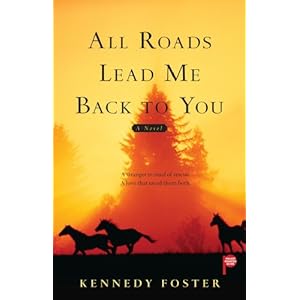Joan has had 45 books published over the course of her 35 year writing career. The New York and the Washington Post Bestseller lists know Joan well. Her current passion, Christian Romance, added to a packed backlist of Historical Fiction and Contemporary Romance puts Joan in the ranks of some of the most successful authors around.
 The first non-picture book she ever read was Black Beauty, and spent most of her childhood reading horse and baseball stories. As a teenager, she loved romantic suspense: Mary Stewart, Victoria Holt, etc. As a young woman, she became a huge fan of Georgette Heyer and of Dorothy Dunnett’s "Lymond" series. She swears, "I must have re-read those books a hundred times". Thru the years, she found herself turning more and more to books of a spiritual nature. Gary Wills’ book "What Jesus Meant" has had a profound effect upon her life.
The first non-picture book she ever read was Black Beauty, and spent most of her childhood reading horse and baseball stories. As a teenager, she loved romantic suspense: Mary Stewart, Victoria Holt, etc. As a young woman, she became a huge fan of Georgette Heyer and of Dorothy Dunnett’s "Lymond" series. She swears, "I must have re-read those books a hundred times". Thru the years, she found herself turning more and more to books of a spiritual nature. Gary Wills’ book "What Jesus Meant" has had a profound effect upon her life. A former high school English teacher and Yankee's fan, she splits her time between working with her husband at their church's food pantry and writing.
Please welcome, one of the icons of the Romance Novel genre, Joan Wolf
 |
| Joan Wolf |
Me: What was the first thing you ever wrote that told you “I can do this?”
Joan: My story is the tale of a desperate housewife. My husband and I had just moved to Connecticut with our new baby. I had quit work (that was what we did back in the day), I knew no one in my new town, and I was lonely and bored. I picked up a few books that were on the best-seller list (these were the days of Rosemary Rogers and Katherine Woodiwiss) and I read them. I had taught literature and creative writing to high school seniors for a number of years, so I thought, O'kay, I’ll give this a shot. I can work while the baby’s napping. It seemed a much more interesting project than cleaning the kitchen floor.
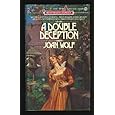 I set my book in the regency period not because it was about to become the hot new thing in romance publishing but because I was a huge Georgette Heyer fan and I knew both the historical and the social scene of that time. I had only the vaguest idea about what kind of a plot I might come up with. To be perfectly honest, I was surprised when I actually managed to write a whole opening chapter. I hadn’t written anything except term papers since the time I tried to write a book about a horse when I was a kid. Then I wrote another chapter, then another. Wow! I was a writer.
I set my book in the regency period not because it was about to become the hot new thing in romance publishing but because I was a huge Georgette Heyer fan and I knew both the historical and the social scene of that time. I had only the vaguest idea about what kind of a plot I might come up with. To be perfectly honest, I was surprised when I actually managed to write a whole opening chapter. I hadn’t written anything except term papers since the time I tried to write a book about a horse when I was a kid. Then I wrote another chapter, then another. Wow! I was a writer. 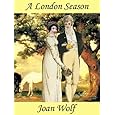 Selling the book proved to be a whole other story. I mailed it off to publishers on my own for almost a year, with no positive results. Once I even got my manuscript back with someone’s vacation pictures stuck in the middle. Finally some kind soul told me I needed an agent. I got the first one I tried and she sold my book (The Counterfeit Marriage) and got me a contract for two more. Interestingly, it sold to NAL, a company that had previously turned it down when I sent it on my own.
Selling the book proved to be a whole other story. I mailed it off to publishers on my own for almost a year, with no positive results. Once I even got my manuscript back with someone’s vacation pictures stuck in the middle. Finally some kind soul told me I needed an agent. I got the first one I tried and she sold my book (The Counterfeit Marriage) and got me a contract for two more. Interestingly, it sold to NAL, a company that had previously turned it down when I sent it on my own.Me: Christian Romance is a rapidly growing market. What do you think has spurred the growth?
Joan: Christian Romance has always been popular in Christian book stores, but I think its surprising growth into the wider book market has been spurred by regular romance readers who just got tired of the heavy sex, vampires and werewolves that seem to populate most romance novels these days. I know I got sick of it, and that’s one of the reasons I turned to Christian romance. It offered me a chance to express my own faith while telling an emotionally and psychologically rich love story about human beings. The New York publishing houses are no longer giving women this kind of romance and these readers are discovering that Christian romance does. I think that’s why it is growing so quickly and I also think it will continue to grow as the word spreads: This is what readers are looking for in a love story.
Joan: The book I have coming out in July from Thomas Nelson is called A Reluctant Queen, the love story of Queen Esther, and the title says it all. It tells the story of a sheltered Jewish girl who becomes the wife of the Great King of Persia, saves her people from annihilation by the evil Haman, and finds the love of her life in her exalted (but lonely) husband.
Joan: What outline?
Me: If you could have lunch with any Author you choose, from throughout history or today, what would you want to talk about?
Joan: I’m sure I should name someone exalted, like Shakespeare or Jane Austen or Dante. Well, maybe not Dante; I don’t speak Italian let alone medieval Italian. But, truthfully, I would adore to have lunch with Dick Francis. I have been a horse lover all my life and I’ve read every single one of his books - some more than once. Naturally, I’d want to talk about horses - and maybe writing (a little). I’m quite sure he was the most delightful man and I was truly saddened when I learned of his recent death.
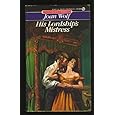 Me: You have a love for Historic Fiction. I really enjoy your "time" in the sixth century. When did you come upon your love for the Arthurian Ideal?
Me: You have a love for Historic Fiction. I really enjoy your "time" in the sixth century. When did you come upon your love for the Arthurian Ideal?Joan: When I was in high school Camelot was playing on Broadway and a boyfriend took me to see it for my birthday. Richard Burton played Arthur. I fell madly in love with him and thought Julie Andrews was insane to have looked at anyone else. After crying my eyes out at the theatre, I read everything I could get my hands on about Arthur. I read Mallory, of course, and the other medieval Arthurian tales, but what really began to intrigue me was the historical Arthur.
It sparked my imagination to think that a leader from deep in the dark ages could have left so strong an imprint that legends sprang up around him. That is why The Road to Avalon is set in the final days of Celtic-Romano Britain and I portray Arthur as the savior who kept civilization alive by turning back the waves of Saxon invasion.
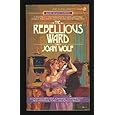 Me: My favorite subject – Editing. Talk about editing your first book. Also, how did you know when to stop?
Me: My favorite subject – Editing. Talk about editing your first book. Also, how did you know when to stop?Joan: Alas, when I edited my first book I kept changing adjectives and adverbs until I thought I had the right ones. Now when I edit, I take things out. Adjectives, adverbs, sentences, whole paragraphs - gone forever. In truth, I rather cringe when I look at my early stuff.
Joan: I have been very fortunate in my agents. Every one of them has really loved my books and has been committed to selling them. I would never have done as well as I have as a published author were not for excellent agents. My present agent, Natasha Kern, is the one who introduced me to the Christian Romance market. She’s been a huge help; I’m new to this genre and she knows just about everything.
Joan: Every hero has to have a problem (an emotional or psychological problem, not a plot problem) he needs the heroine to help him deal with. A man who is sufficient unto himself is not the stuff romance is written about. He can be the most gorgeous hunk in the world, but he’s gotta have a flaw somewhere.
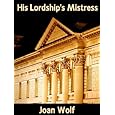 Me: If you got a blank check to write about anything and it’s guaranteed to be published, what would the subject be?
Me: If you got a blank check to write about anything and it’s guaranteed to be published, what would the subject be?Joan: This is so easy for me to answer. I have been working on a book about Mary Magdalene that I just love. I have written the first two parts and my agent, Natasha Kern, is very excited about it. It’s a very different slant on Mary’s story, starting with her childhood and showing how the events of her life caused her to become the woman whom Christ regarded as one of his disciples.
I think women especially would love this book; it has a very feminist cast to it. I have become quite entranced with Mary myself, and I look forward to delving back into her world.
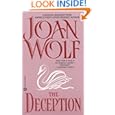 Me: The publishing industry is going through an evolution. How are these changes effecting you and what would you advise new authors to do?
Me: The publishing industry is going through an evolution. How are these changes effecting you and what would you advise new authors to do?Joan: Is it evolution or revolution? No one knows. All we know is that publishing will never be the same. This is good and bad. The old model of books shipped and books returned was ridiculous. There has been an increasing problem with shelf space in the stores - rows and rows of best sellers block out the chance for a new author to get a spot. The mid-list is almost gone. We just have to hope that what is coming will give new opportunities to new writers. I think it will.
************************************************************








